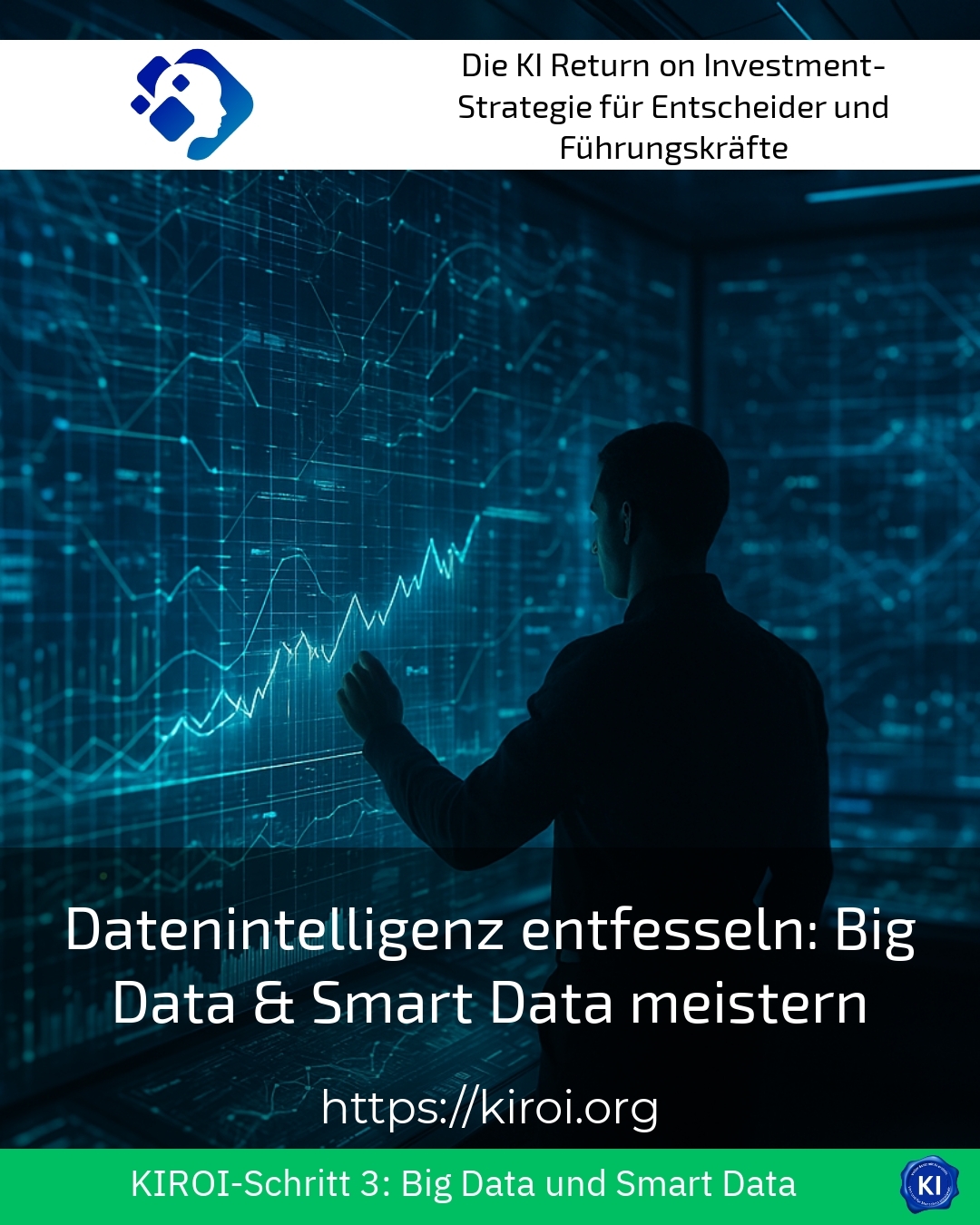The ability to gain valuable insights from large and complex amounts of data is crucial to the success of modern companies. Unleashing data intelligence means mastering both big data and smart data in a targeted manner to enable well-founded decisions. In the digital age, this is no longer an optional advantage, but a key competitive factor.
Data intelligence - more than just collecting data
In many industries, companies collect enormous amounts of data, known as big data, on a daily basis. This includes diverse, often unstructured and rapidly growing information from a wide variety of sources such as sensors, social media and transactions. For example, an e-commerce provider generates customer data from various channels or an industrial company collects production data from networked machines.
However, pure data volumes bring little added value if they are not utilised in a targeted manner. This is precisely where data intelligence comes in. It helps to transform big data into smart data through intelligent processing and analysis, thereby extracting relevant insights. For example, a financial services provider can create risk profiles from extensive transaction data or a logistics company can make supply chains more transparent and efficient.
How smart data complements big data
Smart data is verified, consolidated and high-quality data that is specifically geared towards a company's issues. While big data stands for volume, smart data determines quality and usability. In a production company, for example, the intelligent processing of sensor data can enable the predictive maintenance of machines and thus reduce downtimes.
Marketing agencies are also using smart data to identify customer segments more precisely and design more targeted campaigns. This minimises wastage and increases customer loyalty in the long term. The combination of big data and smart data therefore brings direct, measurable benefits for a wide range of business areas.
Practical application and benefits of data intelligence
The implementation of data-intelligent solutions accompanies a large number of projects. Companies often benefit from a data-based decision-making basis that minimises risks and makes opportunities more quickly identifiable.
In the automotive industry, for example, data intelligence enables intelligent traffic systems that evaluate real-time sensors to optimise traffic flows and safety. Retailers can also dynamically adjust stock levels by analysing customer trends.
In the healthcare sector, data-intelligent systems support the development of personalised therapies by making patient data structured and comprehensible. This leads to better treatment outcomes and more efficient processes.
BEST PRACTICE with one customer (name hidden due to NDA contract) A logistics company used data intelligence to extract relevant KPIs from big data. This enabled delivery times to be predicted more accurately and stock levels to be managed more efficiently. This data-intelligent approach significantly helped the company to reduce costs and increase customer satisfaction.
BEST PRACTICE with one customer (name hidden due to NDA contract) A marketing agency integrated data-intelligent systems to analyse customer reactions in real time. This allowed campaigns to be flexibly adapted and wastage minimised. As a result, sales and customer loyalty increased noticeably.
BEST PRACTICE with one customer (name hidden due to NDA contract) In the industrial sector, data intelligence helped a manufacturer to utilise sensor data for predictive maintenance. Breakdown situations were recognised at an early stage, which significantly improved production reliability.
Tips for the successful implementation of data intelligence
In order to establish data intelligence in the long term, it is advisable to consistently ensure data quality and define clear goals for data analysis. The use of artificial intelligence and machine learning can significantly accelerate the transformation of big data into smart data.
Interdisciplinary collaboration also plays an important role: data scientists, IT specialists and specialist departments should be closely interlinked in order to incorporate contextual knowledge into analyses in the best possible way. This makes it possible to avoid misinterpretations and maximise the benefits of the data.
Finally, transparent communication of the results within the company is crucial to ensure that data-intelligent findings are efficiently incorporated into decisions and are also understood by everyone involved.
My analysis
Data intelligence is the key to unleashing the potential of big data. Strategic and targeted processing of large volumes of data creates intelligent data that enables companies to make more informed, faster and more targeted decisions. The combination of technology, quality assurance and practice-orientated applications is essential here.
Companies that actively support the transition to data-intelligent processes are laying the foundations for greater efficiency, a better customer approach and sustainable innovation. Data intelligence is therefore not just a technical term, but a holistic approach that will play an increasingly important role in the working world of tomorrow.
Further links from the text above:
Smart data: definition, application and difference to big data
Big data vs. smart data: is more always better?
Smart data, or the intelligent use of data - Appvizer
Unleashing data intelligence: Big Data & Smart Data for ...
Big data: definition, application, tips
What is smart data?
Big data: the utilisation of large amounts of data
Making decisions with smart data
Data intelligence: clever use of big data and smart data
For more information and if you have any questions, please contact Contact us or read more blog posts on the topic Artificial intelligence here.















